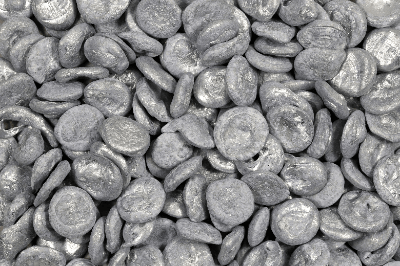What Is Zinc?

Zinc is a transition metal element whose elemental symbol is Zn.
Zinc is widely distributed on the earth, but it does not exist by itself. It is produced as ores such as sphalerite and rhozinc ore, and must be smelted in order to extract zinc alone.
Zinc has a long history, with evidence of the use of brass, an alloy of copper and zinc, as early as 4000 BC.
However, it was not until the 1600s that zinc was extracted as a stand-alone metal, and smelting methods were developed in India and China.
Uses of Zinc
Zinc is used in a wide variety of applications.
It is often used as a metal in plating materials, conductive films, battery electrodes, and steel sheets.
However, zinc is rarely used alone, but rather as an alloy with various other metals.
For example, it is alloyed with copper to make anode plates for batteries, and with aluminum to make galvalume steel sheets for roofing.
Zinc is also one of the building blocks of the body, and a daily intake standard of 7 to 10 mg has been established. It is also sold as a dietary supplement in drugstores.
Characteristics of Zinc
Zinc is characterized by its greater ionization tendency than other metallic elements.
The greater ionization tendency means that it releases electrons and becomes a cation more easily, and is more likely to bond with oxygen. When it bonds with oxygen, it corrodes faster.
For this reason, zinc plating on other metals, such as iron, is used to prevent corrosion of the steel by corroding the zinc first.
In batteries, zinc, which ionizes easily, is used as the anode, and a metal that is more difficult to ionize than zinc is used as the cathode, thereby creating a flow of electricity.
In the body, zinc is involved in the synthesis of proteins and DNA.
Therefore, a deficiency of zinc can cause a variety of adverse effects, including growth impediment, impaired reproductive function, anemia, and cognitive dysfunction.
Taste disorder is a well-known and particularly noticeable symptom in which the inability to sense taste is impaired.
However, excessive intake of zinc can also cause health problems. For example, daily intake of more than 10 mg of zinc is known to increase the risk of prostate cancer.